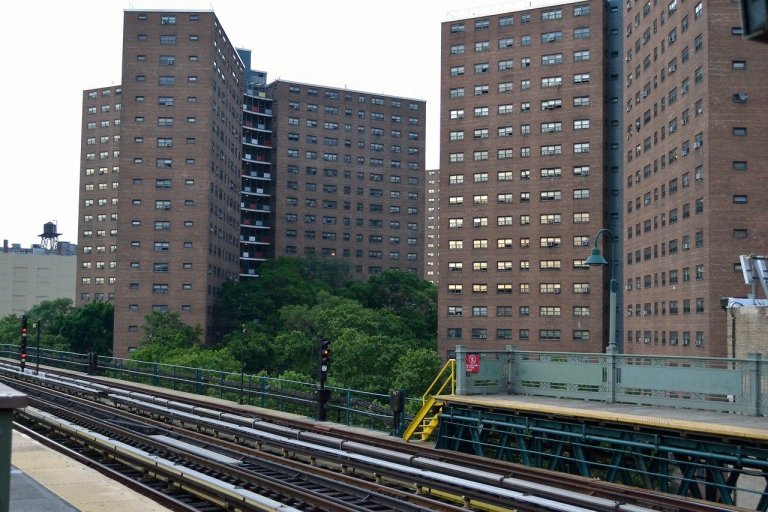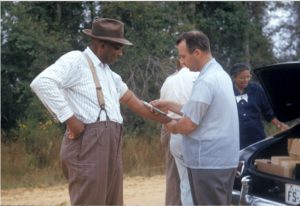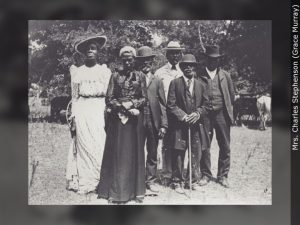Photo: F. Muhammad from Pixabay
This article first published 1/4/21 by the Minnesota Spokesman-Recorder. https://spokesman-recorder.com/2021/01/04/part-i-a-soldiers-story-a-fathers-lessons-about-americas-class-war/
What I remember is my father pumping gasoline at an Indianapolis gas station while I waited in the car with my mother and two brothers. It was, as I recall, a summer weekend in the bicentennial year, 1976, and from the car’s back seat, I watched as my father and the cashier, a White woman, began to argue.
He accused the woman of cheating him out of the change he was owed; the cashier insisted that he had given her a $10 bill rather than the $20 my father said he’d handed her. In my mind’s scrapbook, I can see plumes of smoke billowing from my dad’s blue-black forehead as he flew into a rage, swearing and pointing his finger at the attendant who was behind the glass booth.
“Sir, I am going to have to call the police,” I remember her saying over the loudspeaker. “ Go ‘head,” my father said defiantly. “I’ll be right he- ah.”
When the police officer arrived a few minutes later, the woman told her story, my father his. The officer, also White, unsurprisingly chose the cashier’s version of events. Towering over my father, the police officer extended his hand to return the change that the cashier said he was owed from the $10.
“**** your change, peckerwood,” my father said, simultaneously slapping the change from the officer’s hand. I remember the hollow sound of the coins pelting the concrete like tin rain, and watching the officer place his hand on the holster as though reaching for his gun.
From the car’s passenger seat, my mother intervened, convincing her husband that this was not a hill worth dying on. “Cecil,” she said, “C’mon. Let’s go. ”
Born 89 years ago today to the son of a slave, Cecil Nathaniel Jeter did not suffer fools gladly as the saying goes. Yet to fully grasp the dire circumstances facing a nation in post-industrial free fall, you’d do well to consider that what inspired my old man’s rage on an afternoon 45 years ago was not some blanket loathing of White people, but rather his profound understanding of class struggle and the role that racism plays in undermining proletarian solidarity.
My father was far from perfect: he let bitterness get the best of him at times, lost years to the bottle, and often unfairly blamed my mother for his own shortcomings. But despite only a high school education, he was a voracious reader and the first class warrior I ever knew. Even to this day—nearly 10 years after his death—his ferocity, brilliance, and humanity continue to shine on me, like the warmth from a thousand suns.
My dad undoubtedly viewed the White gas station attendant and the police officer as traitors to their class, no better than marionettes on a string, manipulated by the oligarchs to fight a proxy war against their coworkers rather than challenge their common enemy: the bosses.
“They do not want the White man and the Black man to get together,” he would often say to me, like a mantra, long before I could fathom the full weight of what he was saying.
“Daddy was my first lesson in the way the American system works,” said my sister, Karen, now 63. “He would always say that the White man and the Black man are like two rabbits chasing after a dollar bill and in the midst of chasing that dollar bill they start fighting each other. That’s why we never get anywhere.”
Roughly six months after the gas station incident, on February 8, 1977, a 44-year old man of Greek descent Anthony Kiritsis walked into the office of his Indianapolis mortgage broker, and wired the muzzle of a shotgun to the back of the lender’s head. Much of the hostage standoff was broadcast live on television and while I don’t recall my father exhorting Kiritsis to murder his hostage, his sympathies clearly were with the blue-collar borrower whose exploitation by the financier underscored America’s kleptocracy.
The old man always sided with the underdog. We were at that off-brand gas station in 1976 because my father refused to buy gasoline from Shell Oil which supported South Africa’s barbaric, apartheid government.
Writing to my mother in 1956 when he was a serviceman in the Korean War, he described his commanding officer disciplining him for asking why the U.S. was always picking fights with people who’d done nothing to us. “So today, I’m cleaning the latrines,” he wrote.
His father, James Jeter, was born in Union, South Carolina, in 1884, two years before state lawmakers prohibited Blacks from entering into collective bargaining agreements and created a militia solely to suppress labor organizing. Undoubtedly fleeing the racial terror that followed, my grandfather was part of the Great Migration’s first wave, arriving in Indianapolis sometime before World War I.
When I was an adolescent, my father would shuttle me to a prewar gymnasium to play pickup basketball, and if we made that trip two dozen times, I swear he told me the same story 24 times, each time apparently oblivious of the previous trip, as though he was in a trance.
When he was a child of maybe eleven or twelve, he had tried to play there, walking the nearly two miles from his family’s shotgun house to the gymnasium, only to be turned away by a White man not long after he had walked inside and began shooting baskets with the other boys, all of them White. As he trudged back home in the heat of a summer day, a few of the White boys who had seen him at the gym doused him in a bucket of piss as they whizzed by him in a pickup truck.
When my father returned home from the war, he bounced around from job to job before catching on in 1965 at Chrysler where he quickly decided that he wanted no part of the backbreaking assembly lines and the dangerous speed-ups. He enrolled in training courses that would enable him to eventually become the plant’s first African American skilled tradesman, after first being denied a promotion despite scoring the highest on a qualifying examination.
When he inquired about the promotion, my father recalled the White foreman’s response thusly: “Now Jeter, if I promote a nigger, we’ll both be fired.”
But he persisted, and I was never so proud to be my father’s son than at his wake on a snowy, January day in 2011 when several of his Black coworkers told me that he was always encouraging them to enroll in the training courses for promotion to the higher-paying, less strenuous and safer skilled-trade positions like the one he held.
Jon Jeter is a professional journalist, commentary writer and social media commentator who has served stints at the Minneapolis Star Tribune, Washington Post among others. This is part I of a two-part essay.








No comment yet, add your voice below!